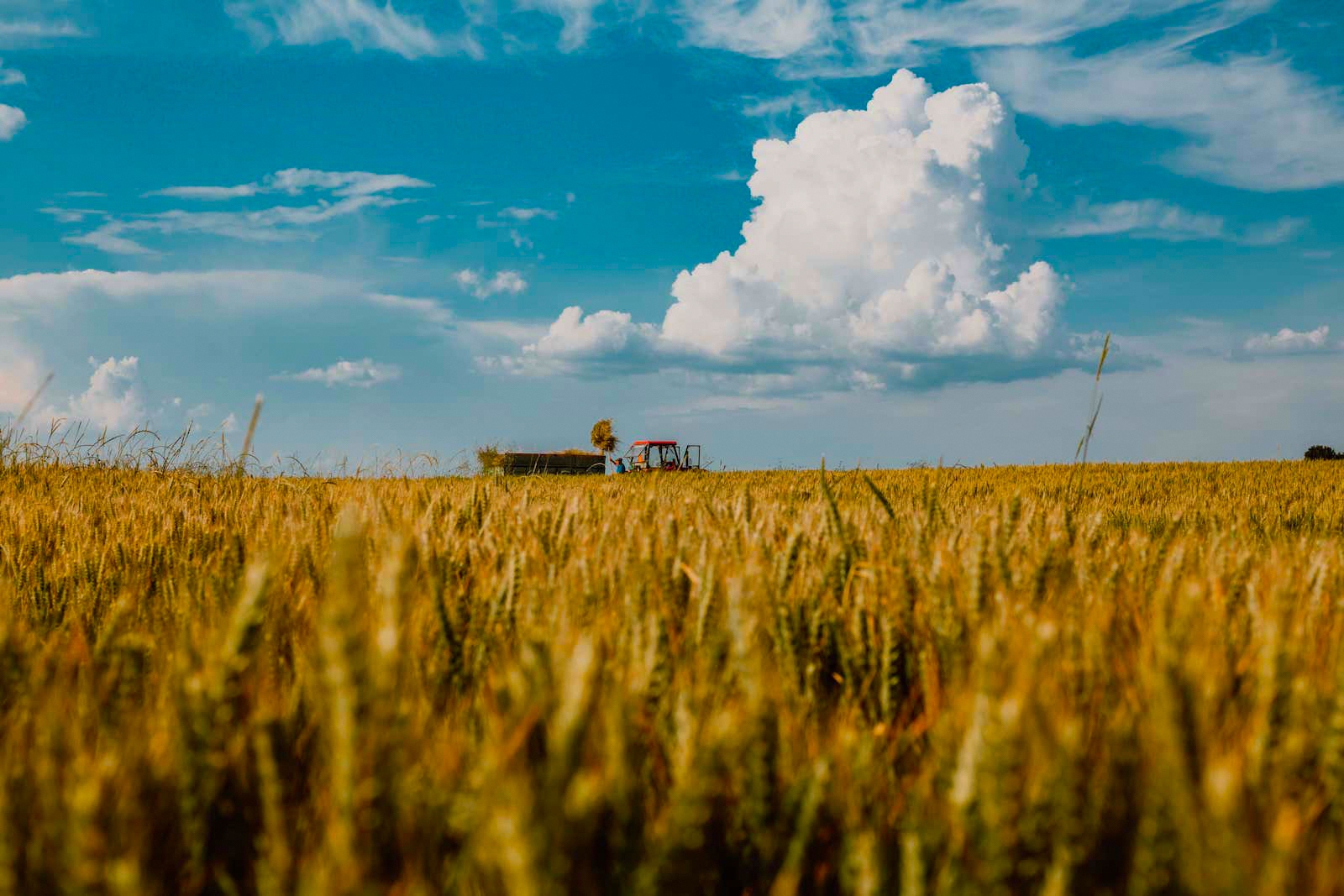
EU’s ‘Farm to Fork’ Must Adapt to Harsh Realities of War and Drought
With the war in Ukraine, droughts, and global food insecurity raging on, two leading figures on opposite sides of these crises have engaged in an indirect diplomatic face-off in Africa. French President Emmanuel Macron’s recent West African tour has coincided nearly to the day with Russian Foreign Minister Sergei Lavrov’s four-country trip to Africa, as both vie for influence and support on the continent.
In his talks with Cameroon, Benin, and Guinea-Bissau, Macron focused on debunking Russian lies that blame Western sanctions for the millions of tons of grain blocked in Ukrainian ports, rightly attributing the global food crisis in Africa to Russia’s Black Sea blockade. Building on this narrative, he promised to help the region weather the current crisis and defend against Russia’s “weaponisation” of food.
To deliver on Macron’s commitments and counter Russia’s escalating African charm offensive, the EU must adapt its agricultural policies to the harsh realities of the moment. In practice, this will mean shielding European agri-food producers from unfeasible environmental targets and boosting the bloc’s production in the short-term, while sensibly driving the crucial long-term green transition.
Yet, the European Commission’s new plan for halving the use of chemical pesticides by 2030 – part of the broader “Farm to Fork” strategy for developing a healthier and more sustainable food system – threatens to undermine Macron’s vision.
While the principle of phasing out chemical pesticides has broad support, the devil is in the details. Pursuing an arbitrary target that would decrease agricultural productivity and cause both consumer and producer costs to skyrocket during global food shortages and soaring inflation is ill-advised, to put it mildly. The proposals have been met with resistance from a wide range of member states, with Italian MEP Herbert Dorfmann highlighting that “we are in a moment where food is needed in Europe” and the Czech Republic and Austria calling for tailoring regulations to national contexts.
The farming industry has also joined in the opposition, but not in the way you might imagine. While COPA-COGECA – Europe’s biggest farmers union – disagrees with the EU’s approach of tightening pesticide regulation without offering farmers sufficient adaptation support, it accepts the long-term necessity of scrapping chemical pesticides. But as a study published in Agronomy for Sustainable Development established, pesticides are “a vital tool in the diverse range of technologies” that protect food security and living standards. To avoid a food security catastrophe like Sri Lanka’s overly-hasty transition to organic farming, agrochemicals need to remain a part of the mix over the medium term to help farmers boost productivity while gradually transitioning to new eco-friendly technologies.
Unfortunately, the pesticide plan is not the only misguided pillar of Farm to Fork threatening Europe’s farmers. Beyond sustainable farming, the strategy aims to promote healthy food systems via an EU-wide Front-of-Package (FOP) labeling system, which informs shoppers on the nutritional value of agri-food products.
France’s Nutri-Score system – the leading FOP proposal – uses a dubious algorithm to grade products on an A-to-E, green-to-red scale based on the contents of an arbitrary 100ml/g serving. Worryingly, Nutri-Score gives certain ultra-processed goods, like Coca-Cola and Chocapic cereal, misleadingly positive grades, which the Italian Competition Authority recently ruled encourages people to “consume this type of product without limits” and “underestimate potential harmful effects.” For this reason, the Authority has just banned products with the label from Italian shops, sparing a small range of French products that must now include disclaimers on Nutri-Score’s scientific shortcomings.
While the algorithm has recently been modified, these cosmetic changes fail to redeem a fundamentally flawed system. What’s more, FOP systems depend on consumer trust to have a positive impact, and how are consumers supposed to trust a system whose creators have long defended it as infallible yet have just acknowledged its need for revision?
Nutri-Score also assigns unjustly negative grades to certain protected heritage foods, such as Spanish olive oil and Italian prosciutto, due to their relatively high sodium and fat content. But the system fails to consider the health benefits of these products in modest quantities, creating a significant economic threat for beleaguered local producers.
To make matters worse, Nutri-Score risks compounding the extreme difficulties facing local agricultural producers due to record-setting heatwaves and droughts in Europe. Olive oil producers in Spain, who generate almost half of the global supply, have expressed real concern that this year’s harvest will be significantly lower than usual – production could drop by 30%.
Europe’s grain production is also at risk – with France, Romania, and Italy amongst the most affected countries. Italian farmers fear a dip in production of roughly 30% or more in Italy, particularly for grain, while Spanish production of key grains such as corn, barley, and wheat could drop by 13%. This heatwave could effectively undo European farmers’ significant efforts to ramp up food production this year to compensate for the grain exports trapped in Ukraine.
Crucially, this loss of agricultural production could also exacerbate the shortages facing certain countries in Africa due to the war. However, there are still tentative signs of hope. Despite the droughts, Europe will maintain a surplus of approximately 40 million tons of cereal to export this season. And the Ukraine-Russia deal to reopen Black Sea ports for grain shipments could soon begin to relieve global pressures. But given Russia’s duplicitous diplomacy, the EU should remain vigilant and boost exports to Africa, as well as technical support in building resilient local food systems, as Macron has called for.
As war, drought and heatwaves drag on, the EU must mobilise its agricultural policies to meet the needs of its citizens and farmers, as well as those of its African allies, particularly as Lavrov’s Africa visit signals a mounting challenge to its influence on the continent. While the long-term greening of European agriculture is essential, sticking stubbornly to arbitrary targets, such as those in Farm to Fork, in the face of such monumental challenges is severely misguided.

